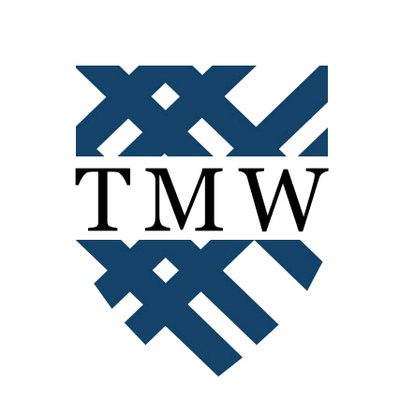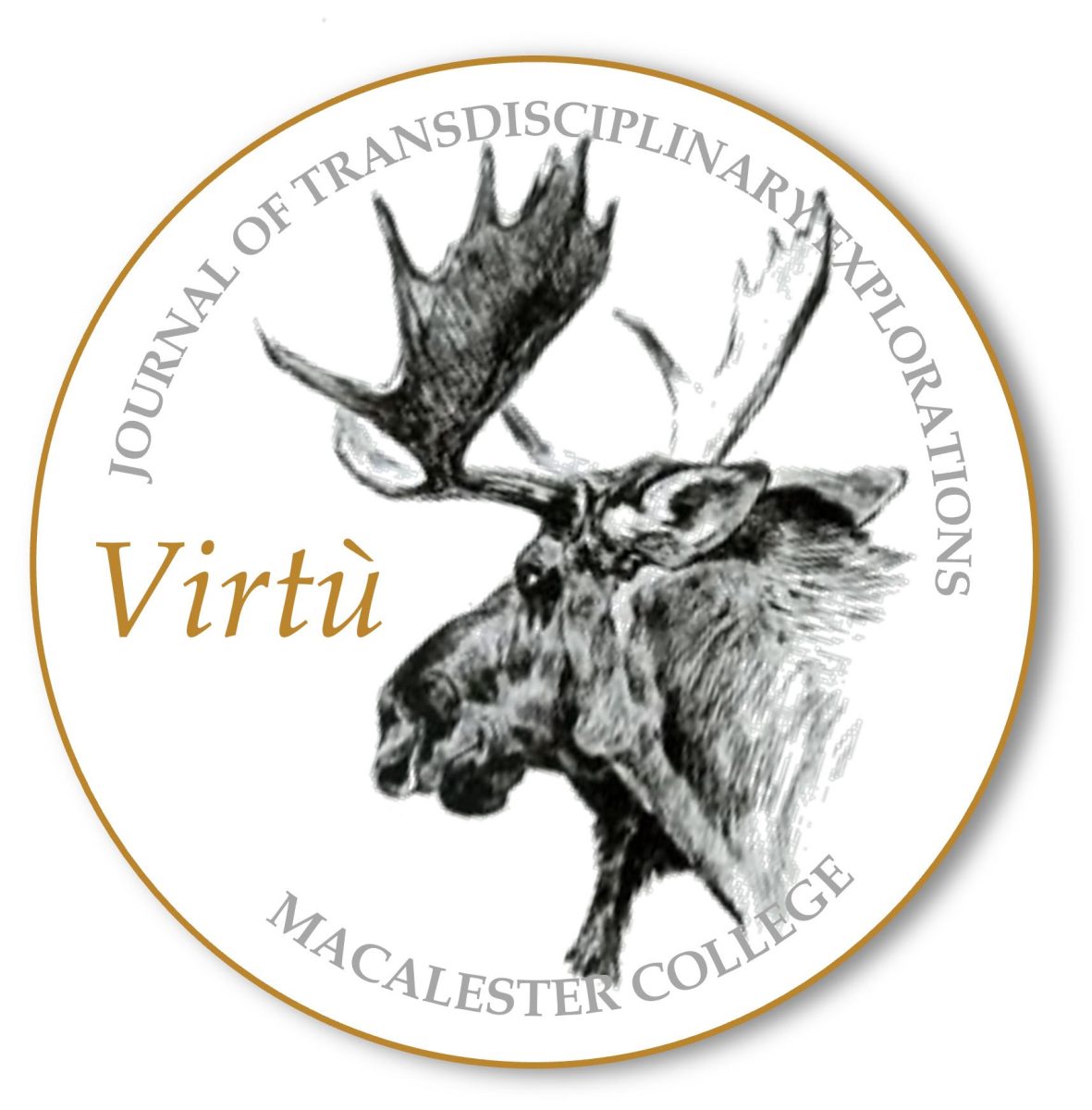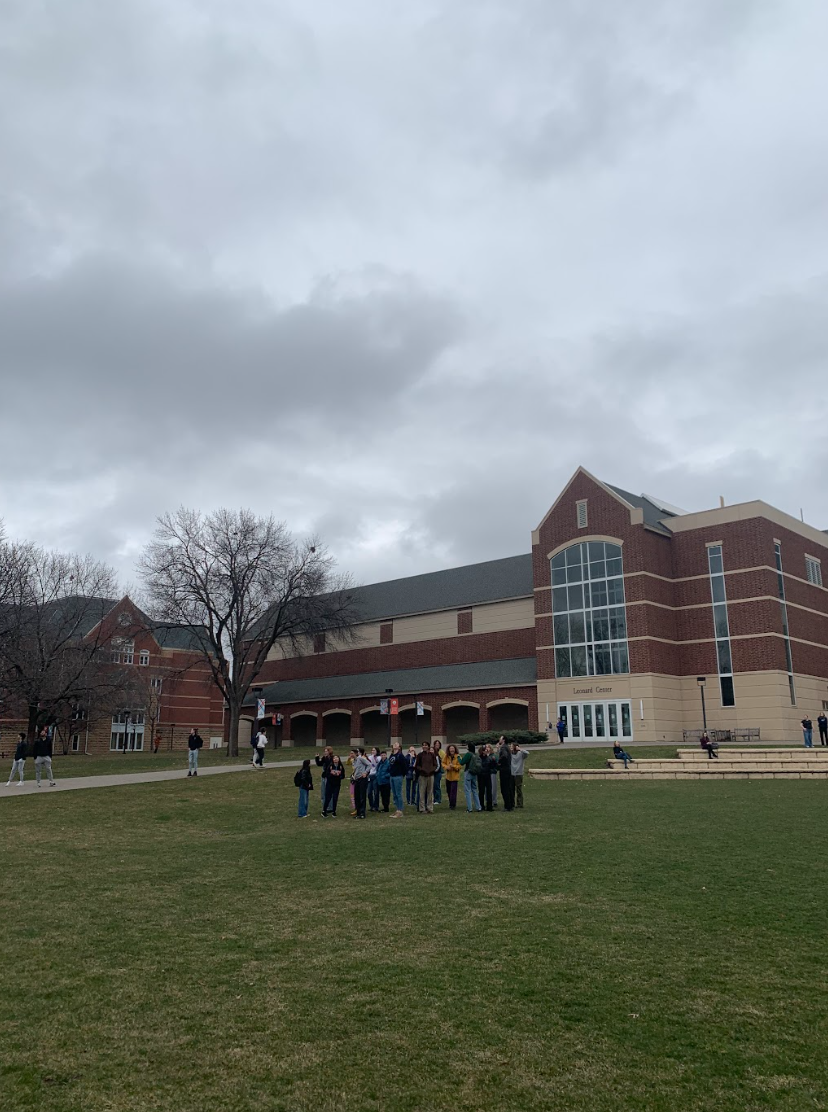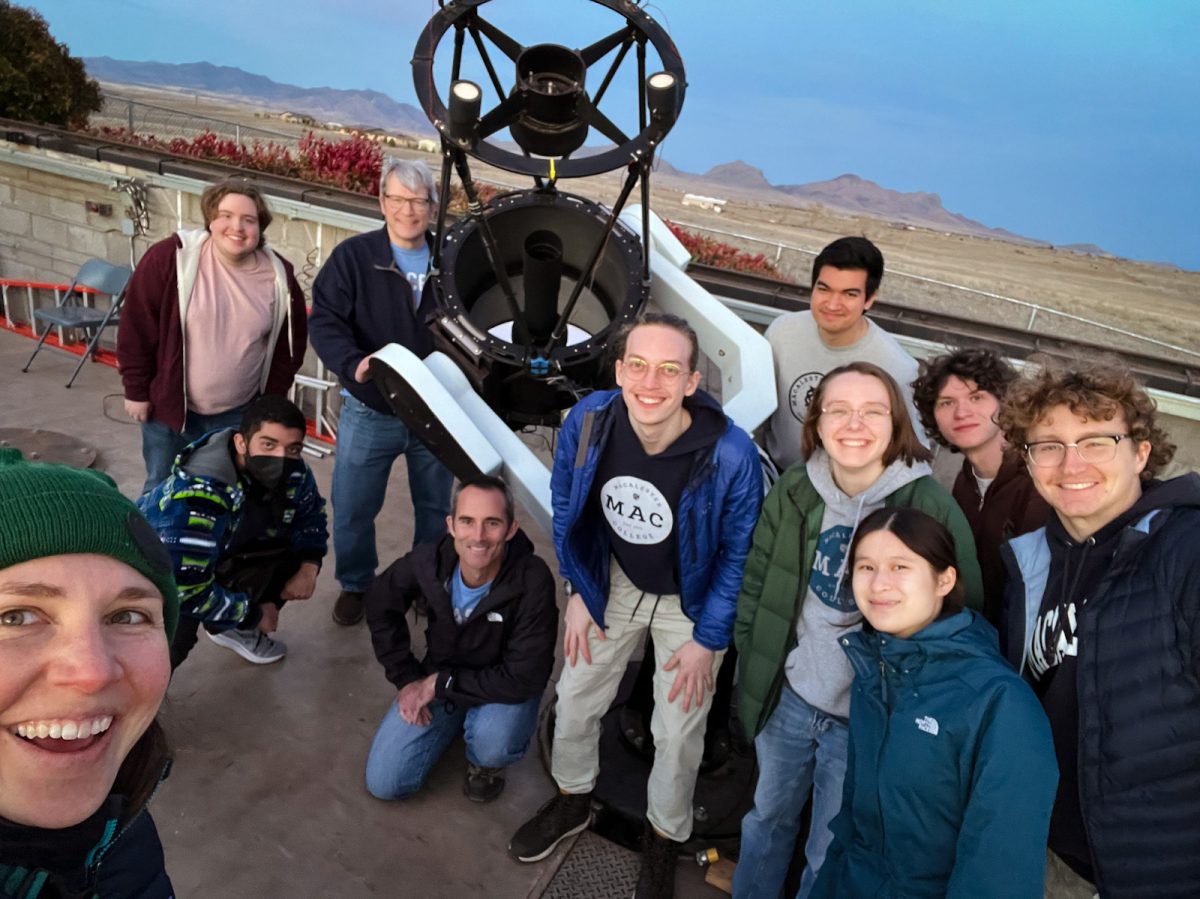
On Wednesday Common Good Books hosted one of our own, political science professor Andrew Latham, for the launch of his new novel, The Holy Lance. The back of the store, cleared out for chairs, could hardly hold the group of Macalester faculty, students and many others who came for the book signing. Latham spoke of his novel briefly, read a passage and answered questions from the audience, ushering his first novel into the Macalester community.
For Latham, a professor who teaches classes ranging from Medieval Political Thought to Chinese Foreign Policy, this is his first fictional work in what looks to be a line of many more. It also reflects a profound interest in the medieval time period and a concerted effort to help his audience better understand the Knights Templar.
The whole project started around 2002. Following the attacks on the World Trade Center on 9/11, Latham set out to research the changing character of war. He identified three eras: the medieval, the high modern and today. Planning to compare the three at the conclusion, Latham never made it past the first case study.
In this case study, he researched the character of war from 1000-1500 AD. In this first stab at a grand comparison of war, Latham was “fired up” and decided not to progress any further.
Once Latham was hooked on the medieval period of war, he quickly came to love the reality behind the Knights Templar. He had a keen interest in them and wanted to get inside their heads. A fictional quest, he thought, was the best way to achieve this goal. Of fictional writing Latham says, “It’s not scholarship but a natural extension of scholarship. It’s not completely unprecedented, but it’s unusual.”
The Holy Lance focuses on protagonist Michael Fitz Alan, a Knight Templar in the Third Crusade in the year 1191. Fitz Alan performs exceptionally well in a counter-attack and is assigned on a mission. With many other Templar Knights, Fitz Alan seeks the Holy Lance, a sort of “Force Multiplier.” Simultaneously, there are several other groups trying to obtain the relic and others acting as obstacles to the knights.
However, the protagonist experiences a major identity crisis during this time. During the adventure, he struggles to balance knighthood with piousness and find his identity. The novel is a story of all monks, so there is no sex or romance, only a “good, old-fashioned, swashbuckling adventure.”
For Latham, the motive behind the novel is to tell the story behind the Crusades, a historical phenomenon that is largely misunderstood, and the Knights Templar, an institution which he also believes to be quite misunderstood. “I’ve tried to do justice to them,” he said, “to empathetically tell their story and get the truth across.”
For Latham, the process of writing a novel was entirely new. Latham had extensive experience with academic writing, but the last time he had written fiction was in the sixth grade. He has always loved reading historical novels and already had a feel for their organization.
The process began with learning how to write fiction. Latham did research and found several books for beginning novel writers. He planned the book to excruciating detail, writing short biographies for each of his characters. Once all of that was done, he researched medieval routines, clothing, food, military technology, armor and anything that would strengthen the story and add to its historicity.
The book, as Latham says historical fiction novels often do, may become victim to critics of its accuracy. He sent it to a retired professor who lives in England to fact check its historicity and the draft was returned with a few pieces of historical feedback. For example, “Father,” the way monks address one another, was not used in the medieval ages. However, he left the word because people expect it and can relate to it.
The success of the book is difficult to measure at this point and may play a deciding factor in whether or not more are to follow. The feedback for his book has so far only come from his friends, Goodreads and Amazon. Latham is contracted to write a series, but that of course depends on the success of the first one. The second book is planned out for the most part, and the plot for the third one is a little “sketchy.”
Lathan has little time during the school year to work on his novels, so “J-Term and summer break are sacred.” He dedicated two summers to work on The Holy Lance. As the current Chair of the Political Science department, Latham has a constant stream of duties, relating to both his own scholarship and to that of students. Life as a chair and professor is “heavy lifting”; it was a commitment for Latham to find the significant chunks of time required write The Holy Lance.
Latham has found that his teaching at Macalester and his novel writing, have intertwined at points. He teaches a course at Macalester called Medieval Political Thought. In that course, Augustine is one of the great thinkers he teaches. Augustine talks about his society being made up of citizens of the kingdom of heaven and citizens of the kingdom of earth. The only difference is that citizens of the first kingdom love God first and the citizens of the second kingdom love this life first.
In the book, there are very few people who are citizens of the heavenly kingdom, whose priorities are to do what’s right and good first, and the majority prioritize power, glory, pleasure and wealth. “I guess the way in which I show up in this novel is a lot of stuff I have taught and written about in the last few years, has found its way in there, in one shape or another,” he says.
Understanding war and violence are crucial parts of Latham’s scholarship and book. He says, “They are an enduring part of the human condition. It helps us understand what people fight over.” The violent actions based on religious views in his book also reflect an enduring condition. “We still have people who live, act and sometimes kill on the basis of religious views.”
While Latham may have found a niche in historical fiction writing, he does not plan to be a full-time novelist. “I love this job. I really do. Good department, good school, good city, good students, good colleagues. What’s not to love? And I’m not blowing smoke here, it’s absolutely true.” In terms of the book, he says, “This is kind of gravy for me.”


















Stephanie McDonald • Sep 9, 2019 at 8:45 am
Thank you for the good writeup. It in fact was a amusement account it. Look advanced to far added agreeable from you! By the way, how can we communicate?